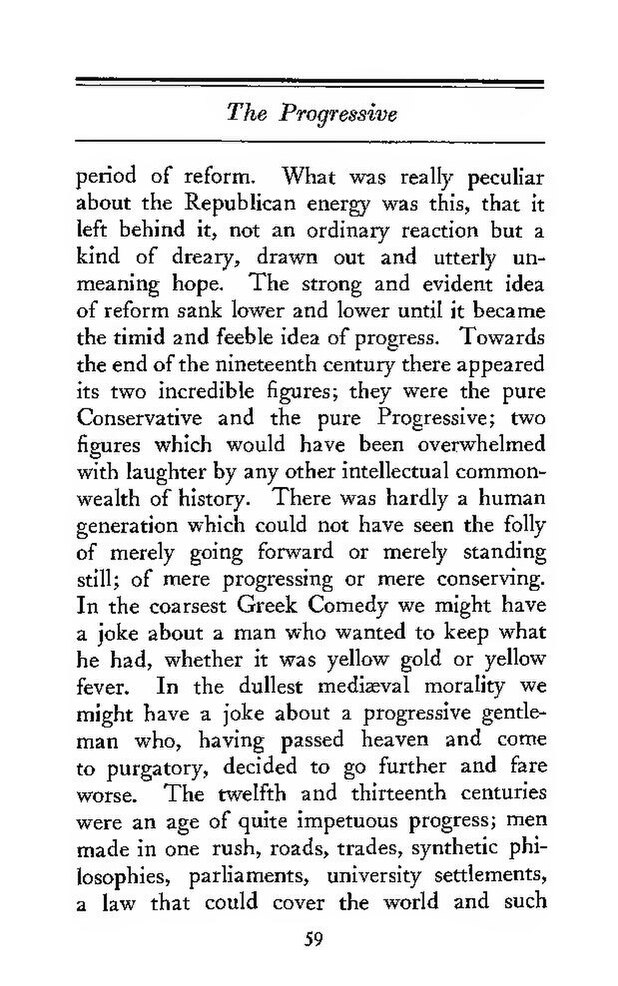period of reform. What was really peculiar about the Republican energy was this, that it left behind it, not an ordinary reaction but a kind of dreary, drawn out and utterly unmeaning hope. The strong and evident idea of reform sank lower and lower until it became the timid and feeble idea of progress. Towards the end of the nineteenth century there appeared its two incredible figures; they were the pure Conservative and the pure Progressive; two figures which would have been overwhelmed with laughter by any other intellectual commonwealth of history. There was hardly a human generation which could not have seen the folly of merely going forward or merely standing still; of mere progressing or mere conserving. In the coarsest Greek Comedy we might have a joke about a man who wanted to keep what he had, whether it was yellow gold or yellow fever. In the dullest mediæval morality we might have a joke about a progressive gentleman who, having passed heaven and come to purgatory, decided to go further and fare worse. The twelfth and thirteenth centuries were an age of quite impetuous progress; men made in one rush, roads, trades, synthetic philosophies, parliaments, university settlements, a law that could cover the world and such
59
